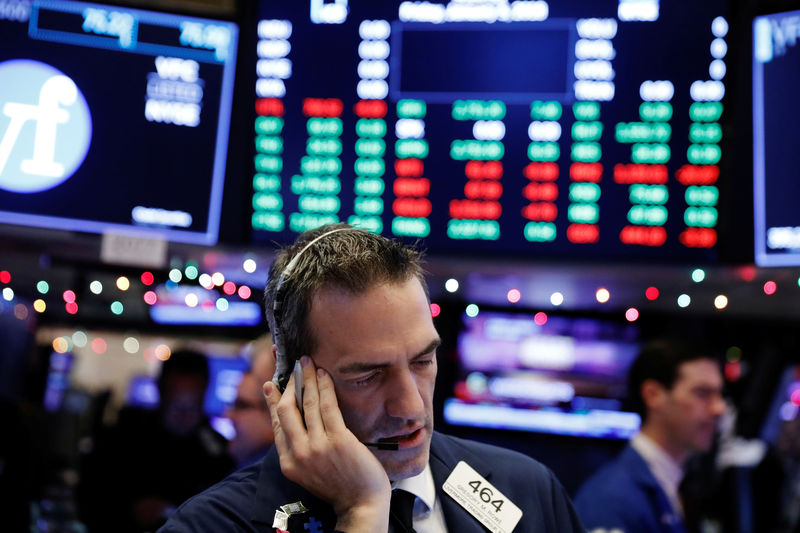This post was originally published on this site
https://i-invdn-com.investing.com/news/LYNXMPEE0G158_M.jpg
Investing.com – The S&P 500 closed lower for the second-straight week Friday, as investors weighed up a “colossal miss” in job gains for November at a time when the Federal Reserve looks likely to step up the pace of monetary policy tightening.
The S&P 500 fell 0.8%, the Dow Jones Industrial Average slipped 0.17%, or 59 points, the Nasdaq fell 1.9%. The major averages ended off the session lows.
“It was a colossal miss,” Darren Schuringa, CEO of ASYMmetric ETFs said in an interview with Investing.com on Friday, referring to weaker-than-expected job gains in November. “When I look at these numbers now, it is concerning for me from an economic strength standpoint.”
Nonfarm payrolls increased 210,000 in November, well below economists’ expectations for 550,000 new jobs.
Still, a deeper dive into the monthly jobs report pointed to signs of the strength in the labor market. The unemployment rate fell more than expected to 4.2% as the labor force participation rate rose 0.2% to 61.8% last month.
While the weakness in hiring “could complicate the discussion at the Federal Reserve … [Fed] officials seem to be leaning toward faster monetary policy normalization in response to high inflation,” Desjardins said in a note.
Technology stocks were among the hardest hit, though pared some intraday losses.
Microsoft (NASDAQ:MSFT) fell nearly 2%, while Apple (NASDAQ:AAPL), Amazon (NASDAQ:AMZN), Facebook (NASDAQ:FB), and Google-parent Alphabet (NASDAQ:GOOGL) were down about 1%.
Chip stocks also exacerbated the selling in the broader tech as Nvidia (NASDAQ:NVDA) slipped more than 4% after the Federal Trade Commission sued to block its proposed $40 billion takeover of chipmaker ARM Holdings (LON:ARM), citing competition concerns.
“[W]e see the FTC’s decision to sue to block the deal as almost certainly ending the chances of any acquisition,” Wedbush said in a note.
DocuSign (NASDAQ:DOCU), meanwhile, plunged 42% after its softer fourth-quarter guidance suggested the e-signature company is unlikely to sustain its pandemic-fueled growth, bringing down the broader software sector with it.
In other news, Peloton Interactive (NASDAQ:PTON) gave up earlier gains and followed the market lower despite Deustche Bank issuing a buy rating on the stock amid expectations that a hybrid approach to fitness – at home and at the gym – is a possibility.
“[W]e think the hybrid work model extends to fitness, too, and that PTON [Peloton] has plenty of momentum to regain operationally,” Deutsche Bank said in a note.
Financials, meanwhile, were pushed lower by a slump in banks as the Treasury yields fell sharply, with the 10-year yield falling below 1.4%.
SVB Financial (NASDAQ:SIVB), First Republic (NYSE:FRC), Citizens Financial (NYSE:CFG) were sharply lower as falling yields tend to keep a lid on net interest income generated by banks.
The slump in Treasury yields come as investors flag concerns about the outlook for the economy as the Fed appears ready to step up monetary policy tightening at a time when the new omicron variant could threaten growth.
Yet, if the new variant turns out to be less impactful than feared and supply chain woes continue to ease, the broader market could resume its trend higher.
“If the borders remain open, and supply chain [problems] continue to unravel, then that would support the markets moving higher from here,” Schuringa said.
In the short-term, the risk-off trend continued into the crypto markets on Saturday, as Bitcoin and other major cryptocurrencies sold off over 15% in overnight trading.
(Originally published at 4:10pm ET on Friday, updated at 6:25am on Saturday)

